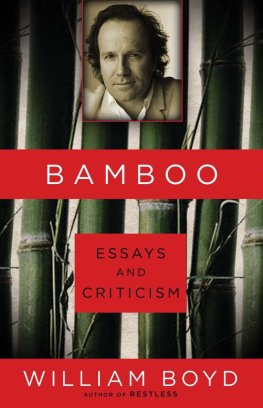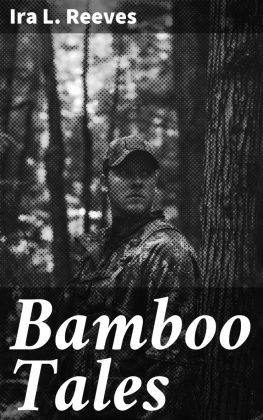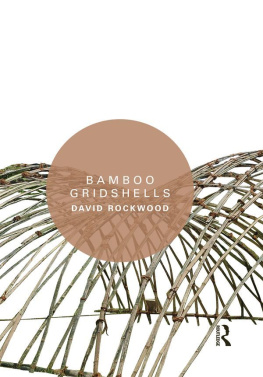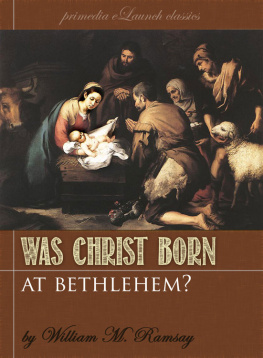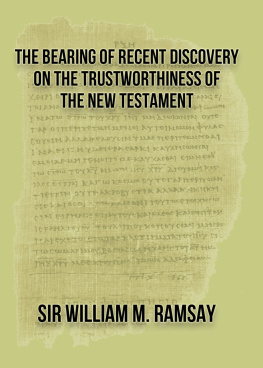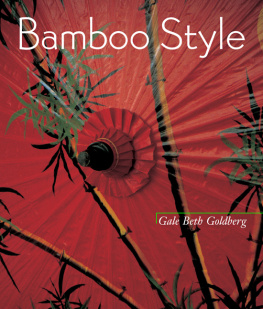The Bamboo Fire
The Bamboo Fire
Field Work with the New Guinea Wape
Second Edition
William E. Mitchell
With a new afterword by the author
Originally published in 1987 by Waveland Press, Inc.
Published 2012 by Transaction Publishers
Published 2017 by Routledge
2 Park Square, Milton Park, Abingdon, Oxon OX14 4RN
711 Third Avenue, New York, NY 10017, USA
Routledge is an imprint of the Taylor & Francis Group, an informa business
New material this edition copyright 2012 by William E. Mitchell.
All rights reserved. No part of this book may be reprinted or reproduced or utilised in any form or by any electronic, mechanical, or other means, now known or hereafter invented, including photocopying and recording, or in any information storage or retrieval system, without permission in writing from the publishers.
Notice:
Product or corporate names may be trademarks or registered trademarks, and are used only for identification and explanation without intent to infringe.
Library of Congress Catalog Number: 2012004376
Library of Congress Cataloging-in-Publication Data
Mitchell, William E.
The bamboo fire : field work with the New Guinea Wape / William E. Mitchell. -- 2nd ed.
p. cm.
Includes bibliographical references.
ISBN 978-1-4128-4255-6
1. Wape (Papua New Guinean people) 2. Mitchell, William E. I.
Title.
DU740.42.M57 2012
305.89912--dc23
2012004376
ISBN 13: 978-1-4128-4255-6 (pbk)
CONTENTS
To send an anthropological expedition to New Guinea especially a family one like ours and bring it home successfully takes the dedicated cooperation of many institutions and hundreds of people. I have expressed my gratitude to some of these institutions and individuals in other places. Here I wish to record a special note of appreciation to the National Institute of Health, whose research grant (# RO1 MH 18039 SSR) made our field work with the Wape people possible; the University of Vermont, administrator of the grant and my academic home; and Joyce Slayton Mitchell who shared the field work experience with me and encouraged the writing of this book.
I am grateful to Waveland Press for publishing this second edition which gives me the opportunity to correct errors that crept into the 1978 edition and to add an introductory chapter on anthropological field work and Wape society as well as an epilogue on my return to Wapeland in 1982 and some final thoughts about the field work enterprise. For their help in the preparation of this edition, I wish to thank Laurent A. Daloz, Aileen R.F. McGregor, Ned Mitchell and, especially, Annette Weiner.
The photographs in the book are mine with the exception of those by Joyce Slayton Mitchell on top, 1 3 3, 1 34 bottom, 136, 144, 145, 146, and 147 top.
This edition is dedicated to the children, women and men of Taute village who so openly shared their lives with me. The following message in Melanesian Pidgin is for them:
Mi Bil i laik tenkim olgera man, meri nau pikinini bilong Taute long lukautim nau skulim mipela long ol pasin bilong Taute long taim mipela stap insait long yupela. Long dispela buk mi yet wokim sampela lik lik stori long dispela taim. Mi tenkyu tru. Em tasol.
William E. Mitchell is Professor Emeritus of Anthropology at the University of Vermont. As an undergraduate, he studied psychology at Wichita State University then attended Columbia University where he received a masters degree in philosophy and in 1969, his doctorate in anthropology. He has done field work in Papua New Guinea among the Wape, Lujere, and Iatmul people of the Sepik River area and in New York City, he has studied a childrens psychiatric ward, Chinese students from mainland China, and Jewish families of Eastern European background. He has published extensively in the fields of family and kinship, and psychological and medical anthropology. His publications include, Kinship, Ethnicity and Voluntary Associations: Jewish Family Life in New York City; Kinship and Casework: Family Networks and Social Intervention (with Hope Jensen Leichter); Clowning as Critical Practice: Performance Humor in the South Pacific (editor); Sepik Heritage: Tradition and Change in Papua New Guinea (editor, N. Lutkehaus et al.); The Living, Dead and Dying: Music of the New Guinea Wape, a cassette recording; and a film on the Wape, Magical Curing.
Some mornings the fog sinks deep around our ridge, and there is no sunrise. Then Aif, or maybe Malpul, disappears into the bamboo grove and sets part of it ablaze. The fire burns hot; the bamboo explodes in loud reports. Now, my neighbors say, the fog will be driven away, the sun will shine, and we will look out over the forest and mountains into the sky again.
And so it is with field work. The anthropologist sets a blaze of inquiry to drive away his ignorance and bring the light of understanding to a culture he doesnt know. This book is about such an inquiry. It is my story of discovery living among the Wape people of New Guinea.

The South Pacific islands long have been a favorite place for anthropologists like myself to visit to learn how indigenous peoples organize their cultural lives. Since the latter part of the 19th century, anthropologists have come to the South Pacific from all over the world to carry out their ethnographic field work studies. Today, islanders themselves trained in the method and theory of anthropology are increasingly making their own ethnographic studies and offering new perspectives on their traditional cultures and the changes induced by the impact of colonial powers who, in some cases, still occupy their lands.
The peoples of New Guinea, the largest island in the South Pacific and the second largest island in the world, have been host to over 200 cultural anthropologists since the Russian anthropologist, Mikloucho-Maclay first arrived in 1871. I made my own first field trip to New Guinea in 1967 and later returned for a two year stay with my family that extended from May 1, 1970, to April 30, 1972. It was the two most extraordinary years of my life. I have had both happier and more difficult years, but none in which my everyday life was so totally transformed or my emotional and intellectual abilities so strenuously challenged.
It is not uncommon for anthropologists to feel this way about their field work experiences. Field work is so vastly different in almost every respect from ones usual life that it is vividly framed both experientially and in ones memories from what preceded or followed it. This is not just because the locale and people are often foreign, memorable though this may be, but rather that the successful field worker must be unusually sensitive to the strange and variable events that surround and engulf him or her while, at the same time, constantly cultivating a heightened awareness of self as a perceptive recording instrument.
Field work, then, is not a nine to five, Monday to Friday job, but the total and unremitting emersion of the anthropologist into another way of life that must be learned. As the task is immense, the time limited, and ones abilities circumscribed, the pressure to produce understanding is unrelenting. It is this sustained affective intensity of the field work experience that makes it such a riveting experience and marks it off so distinctly from the rest of ones life.





